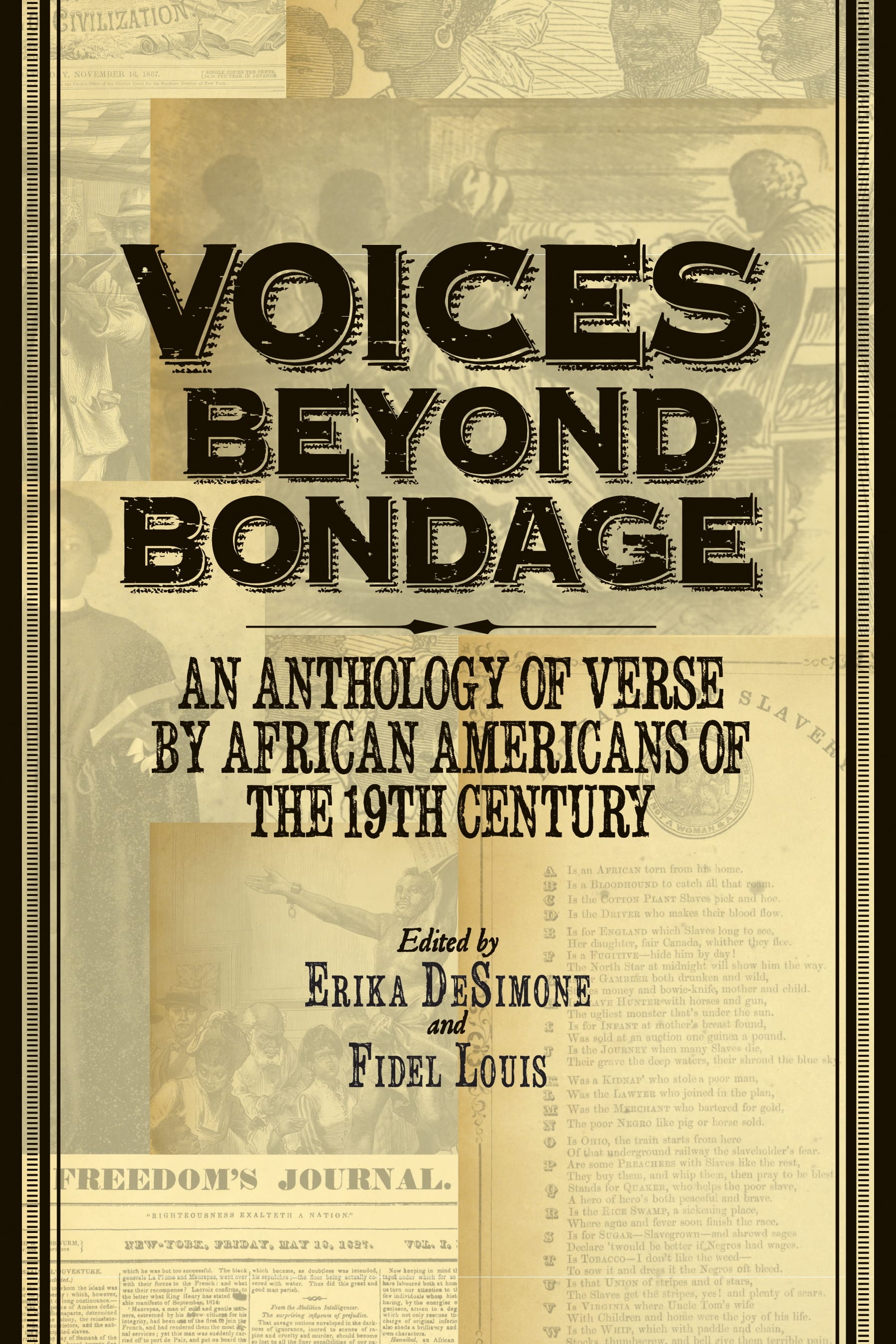George Moses Horton wasn’t supposed to be able to read. As a black slave in rural North Carolina in the pre-Civil War South, he definitely wasn’t supposed to be able to compose sonnets and ballads. But on July 18, 1828, his poem “Slavery” appeared in the newspaper Freedom’s Journal.
Two researchers are bringing attention to poets like Horton though their book, “Voices Beyond Bondage: An Anthology of Verse by African Americans of the 19th Century.” Editors Erika DeSimone and Fidel Louis combed through thousands of black newspapers and pamphlets like The North Star, Freedom’s Journal, Frederick Douglass’ Paper, Western Cyclone and The Christian Recorder to find 150 poems written by black slaves and black freedmen and freedwomen to help flesh out what they call a gap in the history of the black literary movement.
Focusing only on poems published in that era’s black newspapers — the main literary outlet for black authors and poets of the time — “Voices” covers the gamut of African-American poetry from 1827 to 1899: odes to freedom and condemnation of slavery, celebrations of life and love, calls to religion and politics, and tributes to the gloriousness of everyday life.
The most powerful are the poems about the cruelty and desperation of life in bondage, many written by anonymous slaves or slaves like Horton or Mingo, who pinned his on the walls of his slave prison before dying in an escape attempt. It was reprinted in The Weekly Anglo-African on Aug. 10, 1861.




